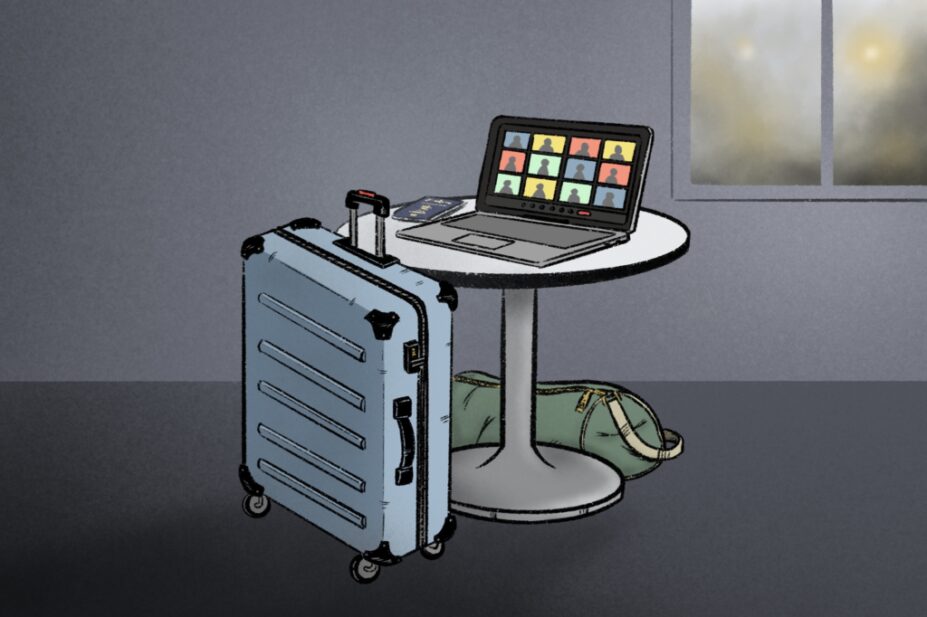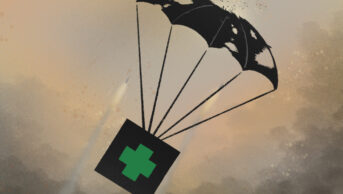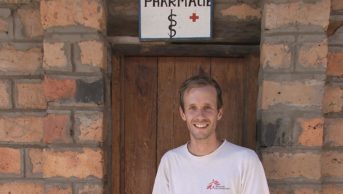
Wes Mountain/The Pharmaceutical Journal
I initially believed that the COVID-19 pandemic would be the most challenging experience for me and my family in our lifetime. However, just when I thought things were improving, the unexpected occurred. On 26 April 2023, I departed Sudan on a military plane destined for Cyprus, and then the UK.
My journey began after completing my pharmacy degree in Khartoum, Sudan, as I eagerly sought new opportunities as a pharmacist in the UK. I received a generous fund to do research in drug design in the UK, leading to an MPhil degree from the University of Portsmouth. After completing my degree, I successfully registered as a pharmacist in the UK and worked as a senior clinical pharmacist for Queen Mary’s Hospital in Sidcup, Kent, before I left to pursue a PhD at the University of Bath.
The demands of my PhD left me feeling exhausted, prompting me to take a career break in the United States. During that time, I enrolled in online courses related to global health. The emergence of the pandemic reinforced my belief in the significance of global health. It also deepened my determination to be closer to my parents. Once the vaccine became available, I promptly returned to Sudan.
My homecoming was joyous, and my reintegration into work was gradual. It wasn’t until a year later that I accepted a full-time teaching position in clinical pharmacy at the University of Medical Sciences and Technology in Khartoum. I recognised that there was much to learn and develop, and I actively collaborated with colleagues inside and outside Sudan to enhance pharmacy teaching and practice.
The sound of gunfire, heavy artillery, and low-flying military planes induced panic
Just as I thought everything was going as planned, on 15 April 2023, a conflict erupted in Khartoum, where I was residing with my parents. While on my way to work, I began hearing gunfire nearby, and hurried home upon receiving calls from my family about gunshots. It became clear that the constantly-feared war had erupted between the Sudan Armed Forces (SAF) and the Rapid Support Forces, a paramilitary group with strong ties to SAF. We remained at home, hoping for a swift resolution.
Although we attempted to stay indoors, I had to venture out a few times to purchase food. There were also challenges with accessing money. After a week, concern for the children’s wellbeing in a war environment grew. The sound of gunfire, heavy artillery and low-flying military planes induced panic. Days of power outages worsened the situation, given the scorching weather and the inability to open windows owing to the ongoing fighting outside.
As the situation failed to improve and more family members and neighbours left Khartoum, we faced a dilemma, as my parents were reluctant to leave. However, when foreign countries began evacuating their embassy personnel, we realised that it was no longer safe to stay. We contemplated taking a bus to the borders, a route chosen by many, but it was too arduous for my parents. In this predicament, we learned about the British evacuation of UK nationals in Sudan.
After 11 days under fire and with minimal luggage, we left our home and boarded a bus to Wadi Seidna military airport, north of Khartoum. The journey was risky, but the driver assured us of a safer, longer route to the airport. From there, along with other families, we boarded a British military plane to Cyprus. For those heading to the UK, a commercial flight took us to Stansted Airport, where we arrived just after sunset on 27 April 2023.
As a pharmacist, I am deeply concerned about the healthcare needs of the people, especially with many hospitals in Khartoum being inoperable
My thoughts are with everyone in Sudan, especially those enduring this war, particularly in the hardest-hit areas, such as Khartoum, where I resided, as well as those who have been displaced or sought refuge in other countries.
As a pharmacist, I am deeply concerned about the healthcare needs of the people, especially with many hospitals in Khartoum being inoperable. Access to healthcare and medicine is at its lowest point — and the healthcare system was already strained before the war. I have colleagues in various healthcare fields who are still working in extremely challenging conditions and, tragically, some have lost their lives in this conflict.
As an educator, together with my colleagues, we are exploring various methods of remote learning for pharmacy students in Sudan. Internet connection is hugely affected by the war and those students in Sudan can be with no internet or phone connections for days. Lectures were sent to students via designated platforms, with the explanation recorded so that, whenever possible, they can download their lectures. We attempted to offer live tutorials and workshops, but many students could not make it and again they had to depend on recordings.
We are facing another challenge within the pharmacy practice department, which pertains to the community and hospital placements for our final year students. While we initially began arranging community placements in safer areas in Sudan and abroad, we recently had to suspend this practice. The reason behind this decision is the inability to ensure the quality of training our students would receive in these placements. However, the final year projects are to proceed as planned.
Continuing with their education provides a ray of hope for these students amid this crisis and will hopefully contribute to the future of Sudan.

